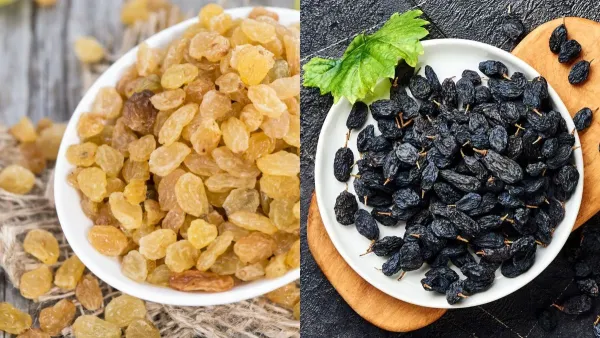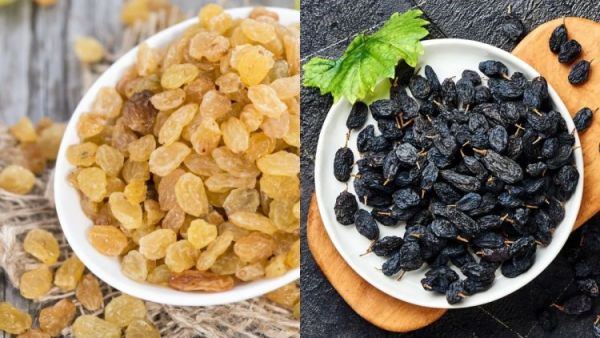
Due to their resemblance, the popular dry fruits munakka (dried grapes) and kishmish (raisins) are sometimes mistaken. They lend sweetness and flavor to savory foods and traditional sweets, or they are eaten as snacks. Their unique flavors and adaptability set them apart. Kishmish has a sweeter and juicier flavor than Munakka, which has a somewhat sweeter and tangier taste. These dried grapes, which are common in many cultures, provide a variety of culinary dishes depth and richness.

In addition to their aesthetic appeal, these sugary delights are said to have many health advantages. Let’s first examine the common distinction between Kishmish and Munakka before delving into their advantages.
The distinction between Munakka and Kishmish
Munakka and Kishmish are two different types of dried grapes. While munakka keeps its seeds and has a somewhat crunchy texture and sour flavor, kishmish is seedless, soft, and sweet. While Munakka’s flavor is nuanced, Kishmish’s sweetness is more noticeable. Aside from texture and flavor, they have several culinary applications. Munakka goes well with savory foods and conventional cures, whereas Kishmish goes well with snacks and sweets. Because of these distinctions, each is special and valued in different cultural settings.
Advantages of Kishmish
Antioxidants found in kishmish fight free radicals and guard against oxidative stress, inflammation, and cell damage, enhancing general health and wellbeing.
Because of its high sugar and fiber content, kishmish acts as a natural sweetener and gives you energy right away, making it a great pre-workout snack or nutritious dessert choice.
Because of its potassium, fiber, and antioxidant content, it also helps decrease cholesterol, control blood pressure, and avoid cardiovascular illnesses, all of which support a healthy heart.
Antioxidants and polyphenols in kishmish have anti-inflammatory qualities that lower inflammation, ease arthritic symptoms, and strengthen the immune system as a whole.
The distinction between Munakka and Kishmish (1)
Munakka’s Advantages
By encouraging the creation of healthy red blood cells and preserving ideal iron levels, munakka’s high iron content helps fight anemia, weakness, and exhaustion.
Its high fiber content ensures easy digestion and guards against digestive diseases by regulating bowel motions, reducing constipation, and supporting good gut flora.
Munakka’s antioxidants fight free radicals, preventing oxidative stress, inflammation, and cell damage while enhancing general health and lowering the risk of chronic illnesses.
Munakka’s potassium, fiber, and antioxidants promote a healthy heart by lowering cholesterol, controlling blood pressure, and preventing cardiovascular illnesses.